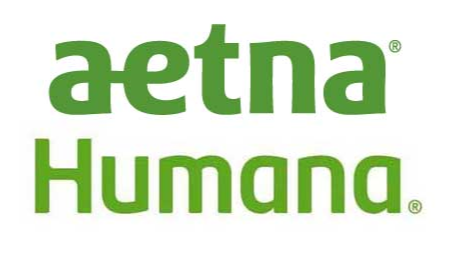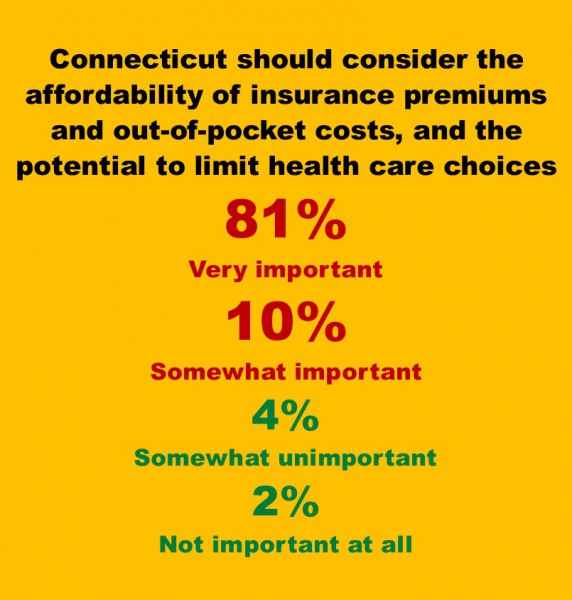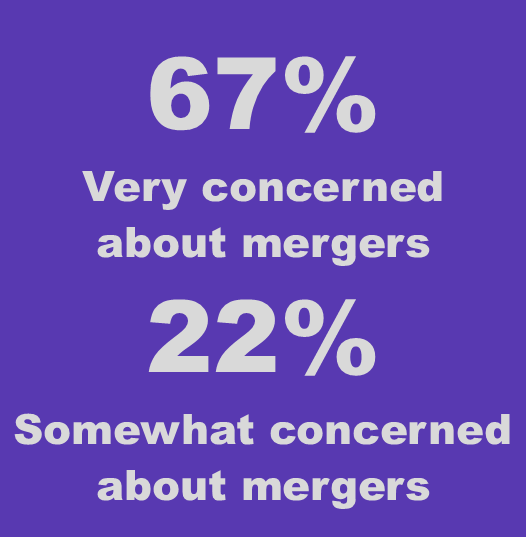Most CT Residents Concerned About Loss of Jobs, Access, Care in Aetna-Humana Merger, Poll Shows; Missouri Decision Points to Adverse Impact
/The State of Missouri raised a red flag today, waving it directly into the headwind that is the pending merger between health care giants Aetna and Humana. Missouri’s action came just as a public poll was released in Connecticut by consumer advocates opposing the merger which indicated a general lack of public awareness about the merger plan and substantial concern about potential job losses and adverse health care affordability and choices here if the merger goes forward.
The Missouri Insurance Department issued an order banning Aetna and Humana from selling certain types of insurance in the state if the companies’ planned $37 billion merger comes to fruition. The order states that Aetna and Humana should “cease and desist from doing business” throughout Missouri with respect to individual and small group insurance and the group Medicare Advantage market if Aetna’s acquisition of Humana is completed.
In Connecticut, the Connecticut Campaign for Consumer Choice coalition released results of a recent poll which found that most Connecticut voters “didn’t know that the five major national health insurance companies – UnitedHealth, Anthem, Cigna, Aetna, and Humana - are attempting to merge down to three companies from five. The new research found that only 27 percent of respondents were aware of the plans.
After they were given more information about the consequences of the mergers among the five national health insurance providers (Aetna-Humana and CIGNA-Anthem), 71 percent of Connecticut voters were opposed to State Insurance Commissioner Katherine Wade approving the mergers in Connecticut.
Nine in ten state voters (91 percent) think that it’s either very or somewhat important that Commissioner Wade “considers the impact of these mergers on the affordability of insurance premiums and out-of-pocket costs, and their potential to limit health care choices, in her decision making process.” And those surveyed were overwhelmingly concerned that the proposed mergers will lead to job losses in Connecticut.
The Connecticut survey, conducted earlier this month by Public Policy Polling, found that 89 percent of Connecticut voters are either very or somewhat concerned that the proposed mergers will lead to job losses in Connecticut. Additionally, 89 percent of those polled believe it’s either very or somewhat important that the impact of these mergers on job losses in Connecticut be considered by state regulators.
Missouri is the first state regulator to release findings against the proposed deal, announced last year, published reports indicated. The deal is being reviewed by the U.S. Department of Justice, as well as state regulators and antitrust authorities, who are also reviewing competitor Anthem’s plan to buy Cigna Corp. Aetna has filed for regulatory approval in the 20 states where Humana is domiciled and of those, 15 have approved the deal thus far, including Connecticut. Because of Humana's limited footprint in Connecticut, the review was more form than substance. The Cigna-Anthem merger, however, is to receive a much fuller review, according to state insurance officials, as Cigna is a state-domiciled company.
Regarding Aetna-Humana, the Missouri Insurance Department “found that in its current, unmodified, form – as to a few specified lines of insurance – that the proposed acquisition would violate the competitive standard set forth in Missouri law, meaning that as to those lines the acquisition would substantially lessen competition in this state.”
The Missouri Insurance Department stressed that the decision “is not a final order. The statute provides that Aetna and Humana may submit a plan to remedy the anticompetitive effect of the merger as to those specified lines.” If that step is taken, the department “would evaluate the plan and may modify or vacate” the order issued today banning the merged company from certain lines of insurance in the state.
"The Missouri order does not impede the Department of Justice approval process," Aetna said in a statement. "We're disappointed, but expect to have a constructive dialogue with the state to address their concerns."
 In addition to the public poll, Connecticut Campaign for Consumer Choice – a coalition that includes the Universal Health Care Foundation, Connecticut Citizen Action Group and Connecticut State Medical Society - released a letter to Commissioner Wade signed by 17 state legislators calling for multiple public hearings on the merger, intervenor status for interested consumer advocates, and a study that would “analyze the potential impact on cost, access, and the Connecticut economy, including jobs” and warning that if the merger is approved, “the resulting mega-insurer will cover 64 percent of covered lives in Connecticut, with an even greater concentration in some regions of our state.”
In addition to the public poll, Connecticut Campaign for Consumer Choice – a coalition that includes the Universal Health Care Foundation, Connecticut Citizen Action Group and Connecticut State Medical Society - released a letter to Commissioner Wade signed by 17 state legislators calling for multiple public hearings on the merger, intervenor status for interested consumer advocates, and a study that would “analyze the potential impact on cost, access, and the Connecticut economy, including jobs” and warning that if the merger is approved, “the resulting mega-insurer will cover 64 percent of covered lives in Connecticut, with an even greater concentration in some regions of our state.”
The Missouri decision comes following a public hearing held on May 16. In testimony provided as part of the public record, Consumers Council of Missouri expressed “profound concern,” warning that the merger would result in a “significant reduction in competition (that) will most certainly result in increased cost to consumers,” adding that “the results will be catastrophic and we will have no power to undo it.”
The Missouri Hospital Association, in offering a detailed 21-page analysis, indicated that “Consolidation will affect the ability of hospitals and other health care providers to bargain competitively for contracts containing appropriate fees for medical services. In turn, such providers are less able to invest in the resources to maintain and improve the quality of care. An anticompetitive suppression of healthcare payments will suppress innovation, to the detriment of consumers.”
































